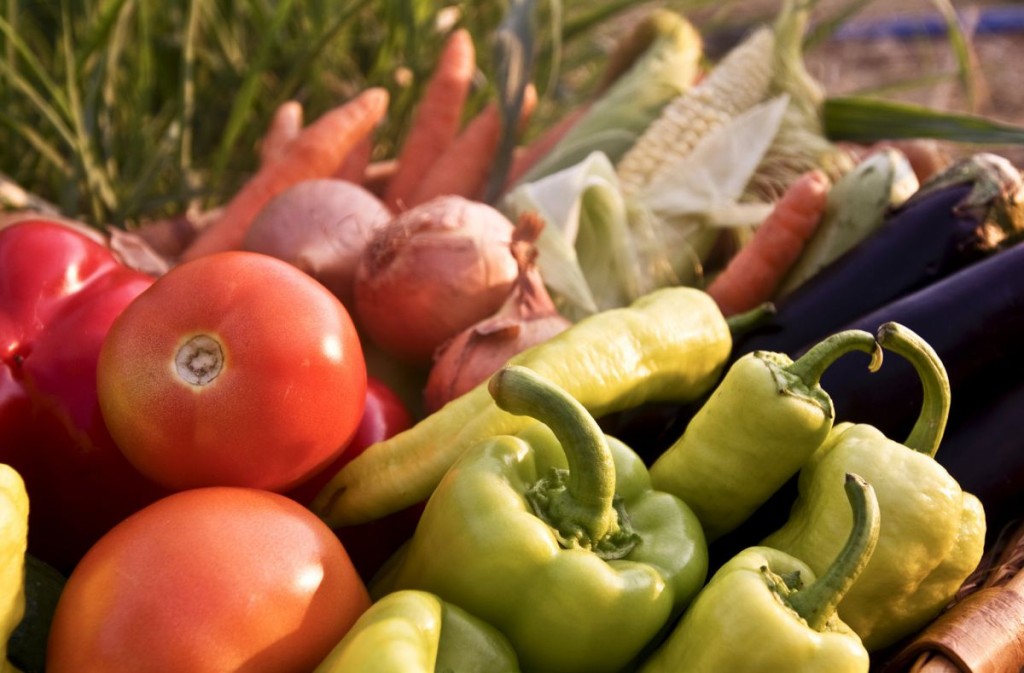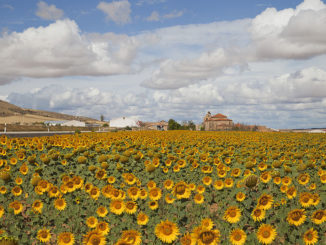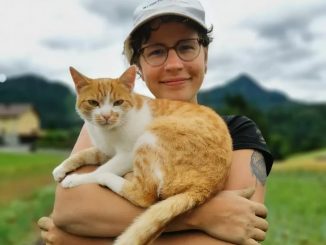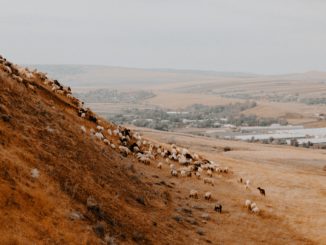“Rising incomes and urbanization are driving a global dietary transition in which traditional diets are replaced by diets higher in refined sugars, refined fats, oils and meats. By 2050 these dietary trends, if unchecked, would be a major contributor to an estimated 80 per cent increase in global agricultural greenhouse gas emissions from food production and to global land clearing.”

Moreover, “these dietary shifts are greatly increasing the incidence of type II diabetes, coronary heart disease and other chronic non-communicable diseases that lower global life expectancies. Alternative diets that offer substantial health benefits could, if widely adopted, reduce global agricultural greenhouse gas emissions, reduce land clearing and resultant species extinctions, and help prevent such diet-related chronic non-communicable diseases.”
Tilman and Clark’s publication (full paper at link) was in one of the world’s most prominent peer reviewed science journals, Nature. The data comes from 50 years of research papers from over 100 countries.
The Gold Silver and Bronze diets they recommend for coping with this “diet-environment-health trilemma” are, in order: vegetarian, pescetarian (fish and vegetarian) and Mediterranean.
Late last year also saw the publication of evidence that Europe has 421 million fewer birds than it had in 1980. “We suspect that the declines are being caused by agricultural intensification and changing agricultural practices,” says lead researcher Rich Inger, associate research fellow at the University of Exeter. In particular, “monocultures and increased pesticide use are likely to blame”, he says.
So what to do? Professor Paulo Tittonell pointed out some solutions. Tittonell is a professor or associate professor in three Universities, including Europe’s leading Agricultural Institution Wageningen, and a keynote speaker at the recent UN FAO international symposium on agroecology.
Speaking to Upsides, he said “‘extensify’ western agriculture, intensify agriculture in developing countries.”
It is worth remembering in this context that 70% of the world is fed by small farmers in the developing world: in other words, the west doesn’t feed the world, it world feeds itself.
“The Western approach to farming uses a lot of energy and water, causes pollution, and depletes the soil. The negative side effects do not show in the price of the products, being subsidized by the government. Which once made sense. Faced with a growing population in the cities, the system was aimed at feeding as many mouths as possible by as little farmers as possible, in the cheapest possible way. But it is not a sustainable model. It is delivering cheap produce because the external costs are not charged to the consumer.”
While not against the judicious use of mineral fertilizers, he pointed to specific benefits of organic farming.
“Ten years ago an article in Nature claimed that organically managed soil has more biodiversity, which you need for a higher production. It was received with scepticism. Now these results are accepted. The science of soil biology is going forward at a high pace. We find that clever combinations of crops in space and time can bring better yields than the mere use of fertilisers and pesticides.”
It is especially noteworthy that Tittonell’s comments were contextualised by hunger: he sees methods typically used in organic farming being adopted in developing world countries, along with basic infrastructure improvements, as the best way to fight global hunger.
To tackle diet, health, environmental and hunger problems all at once – a quadlemma – the agri-food system may have to focus on both increasing general application of organic farming techniques, while also heralding in significant dietary change.
And it turns out that the supposed yield gap between organic and conventional is actually far smaller and less significant that previously thought. Not only that, agroecological methods make organic even more productive ,to the point where in some cases ,for some crops, there is no yield gap.
This important new finding comes from a systematic overview (full paper at the link) from researchers in UC Berkeley, of than 115 studies comparing organic and conventional farming.
According to the paper itself, the agri-food system is in many ways not fit for purpose: “While tremendously productive, our current agricultural food system causes many environmental problems, often trading off long-term maintenance of ecosystem services for short-term agricultural production. Resultant problems include biodiversity loss, massive soil erosion and degradation, eutrophication and oceanic dead zones, pesticide effects on humans and wildlife, greenhouse gas emissions, and regime shifts in hydrological cycling. Furthermore, although agriculture produces a food surplus at the global scale, over 1 billion people are chronically hungry. These problems of hunger, food insecurity and environmental harms will only be exacerbated if current trends in population growth, food and energy consumption, and food waste continue.”
Organic can make a significant contribution to feeding the world,, especially when rotations and multi-cropping are employed:
“We find organic yields are only 19.2% (±3.7%) lower than conventional yields, a smaller yield gap than previous estimates. More importantly, we find entirely different effects of crop types and management practices on the yield gap compared with previous studies. For example, we found no significant differences in yields for leguminous versus non-leguminous crops, perennials versus annuals or developed versus developing countries. Instead, we found the novel result that two agricultural diversification practices, multi-cropping and crop rotations, substantially reduce the yield gap “.
Importantly, yield improvements in conventional agriculture are now very incremental, as many decades of expensive research has been put into this area. Perhaps ironically, agroecology and organics are the new kids on the block.. With proper investment in research and development of both, especially ground up communities of practice approaches, who knows what further improvements the future will hold?
More from Oliver Moore:
- Irish Ag Minister’s Climate Change “voodoo accounting”
- Ireland organises against TTIP
- New Organic Regulation Causing Temperatures to Rise
- 4 Key Agri-Food Policy Needs
- Who is Phil Hogan?
- Ireland Improves Payments & Options for Organic Farmers
- CAP Greening: Ireland opts for path of least resistance
- European Organic Congress case profile: Terre de Liens
- EFSA slammed by Pesticide Action Network over its methods
- Antimicrobial resistance soaring
- Part 3: what did you think? Reader’s replies on livestock reduction
- Part 2: Westhoek & Sutton on Less Livestock in Europe
- Part 1: how to cut EU agri-food Greenhouse Gas Emissions by 40%
- What might TTIP mean for organic farming and food?
- EU Commission scope finds merit in “alternative production”






1 Trackback / Pingback
Comments are closed.